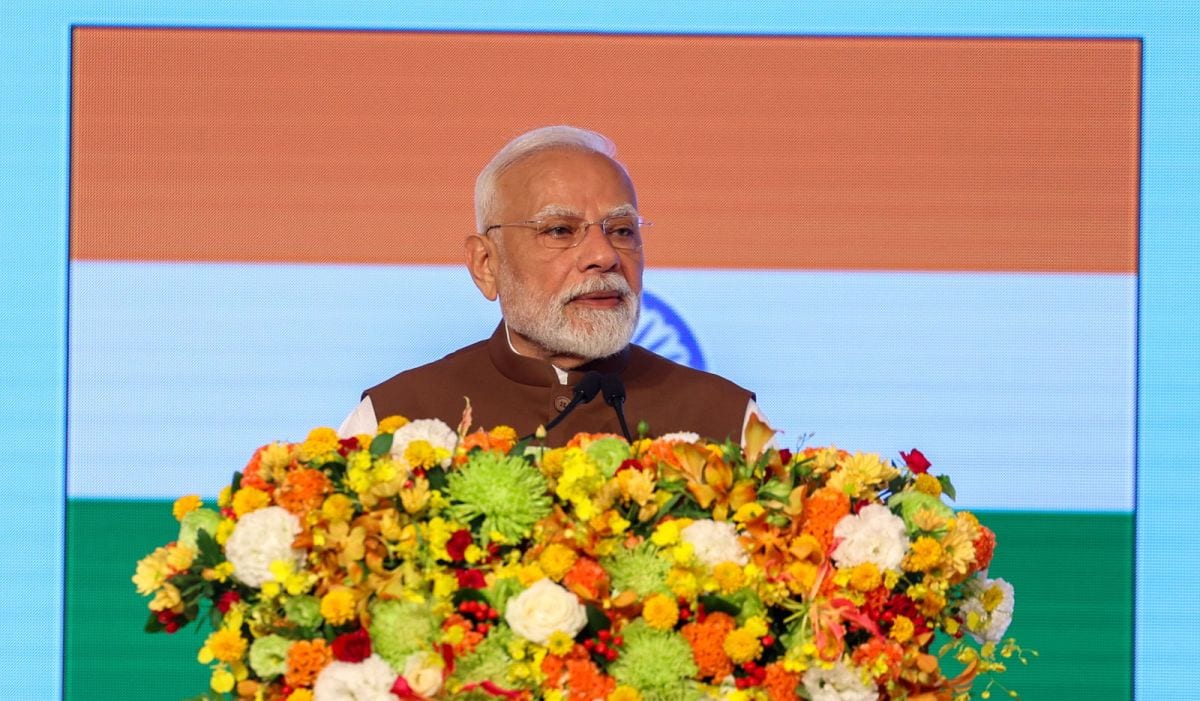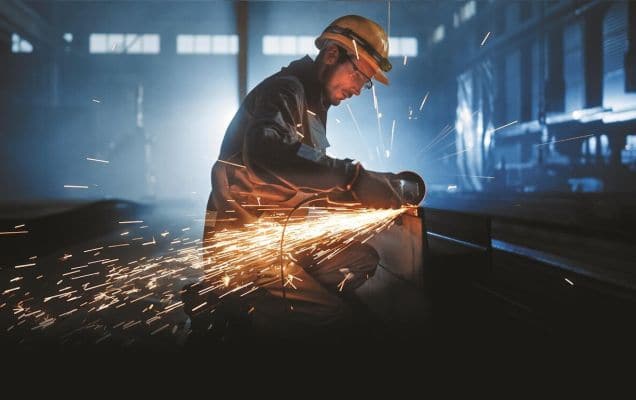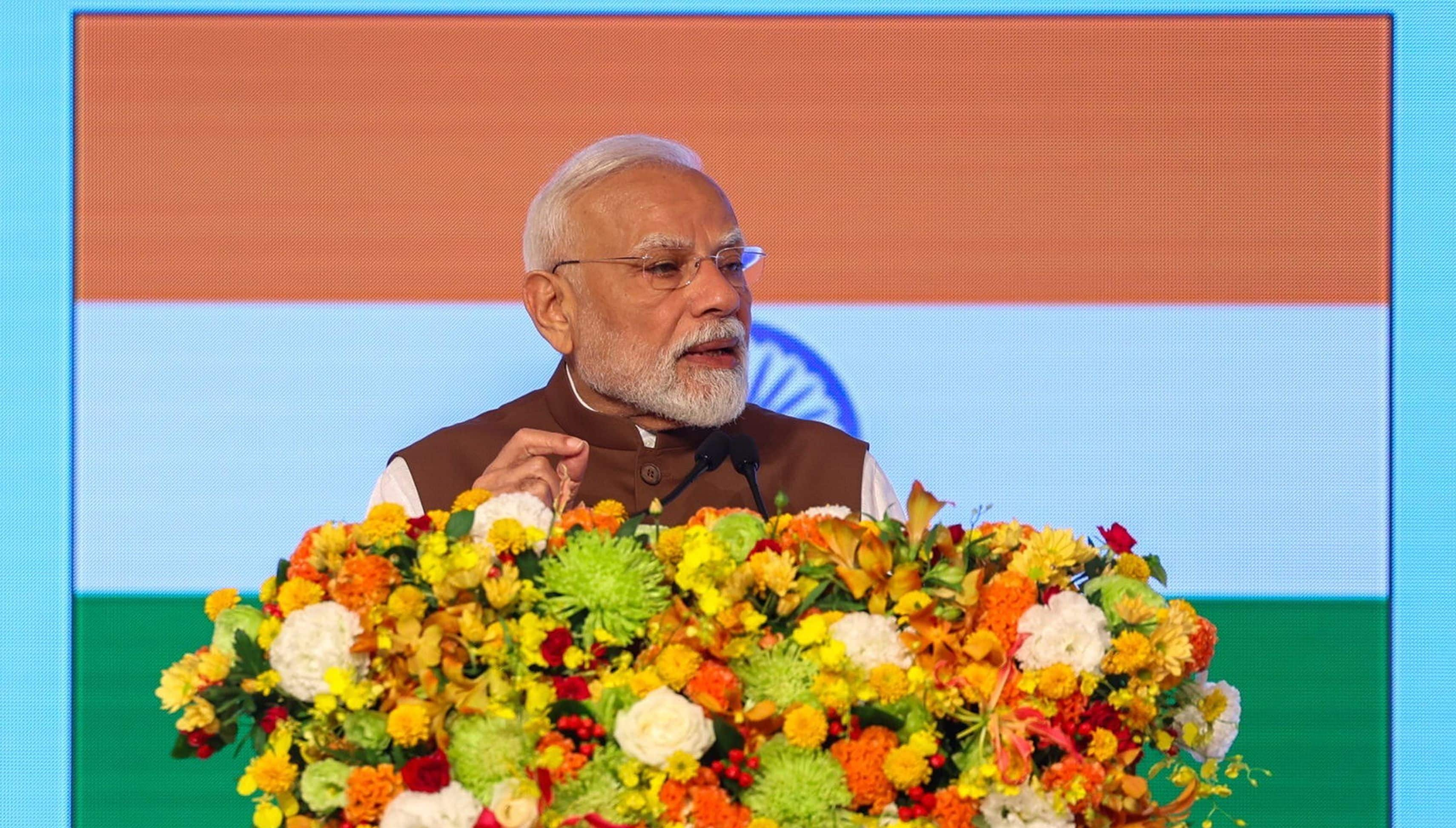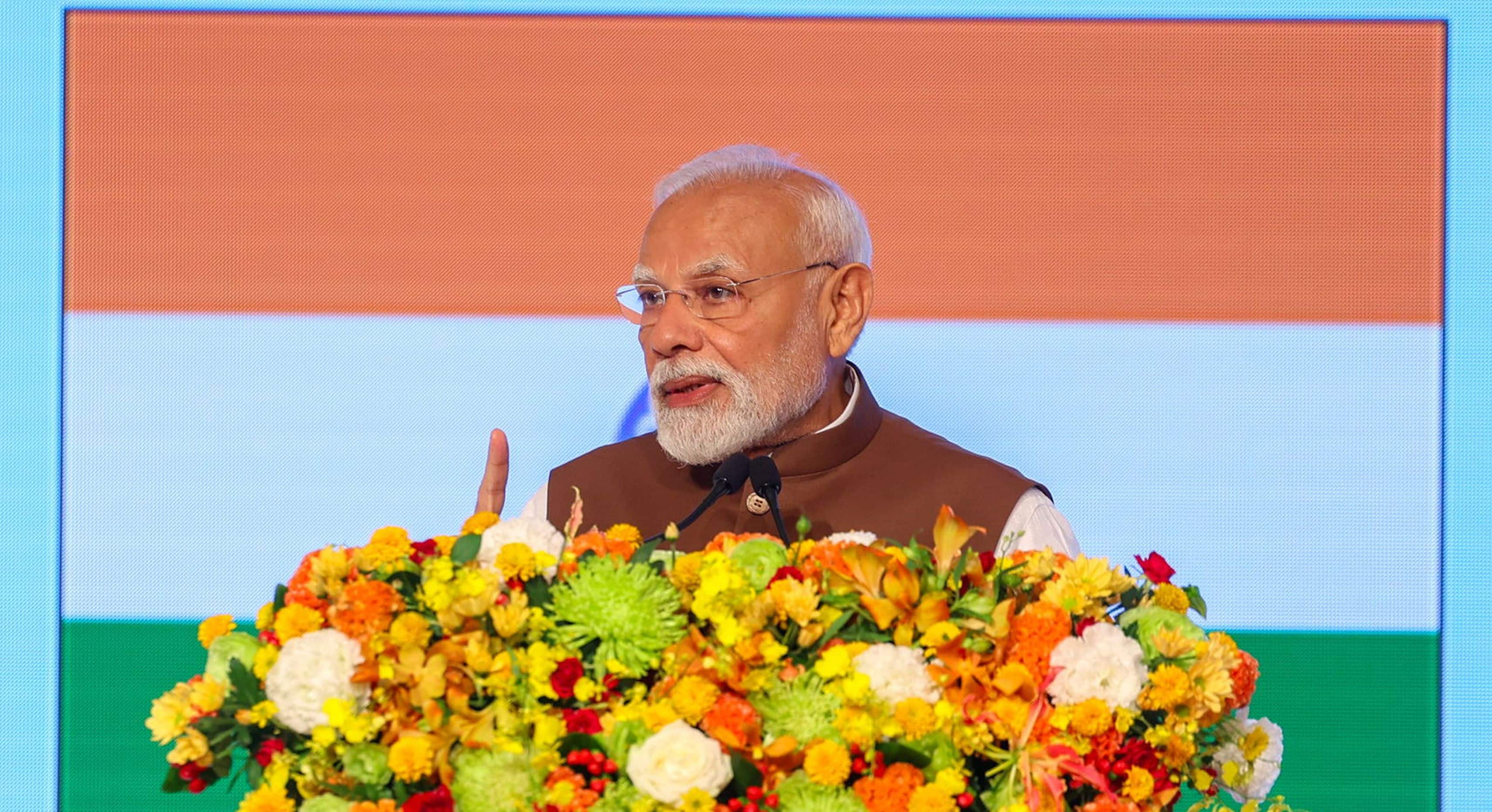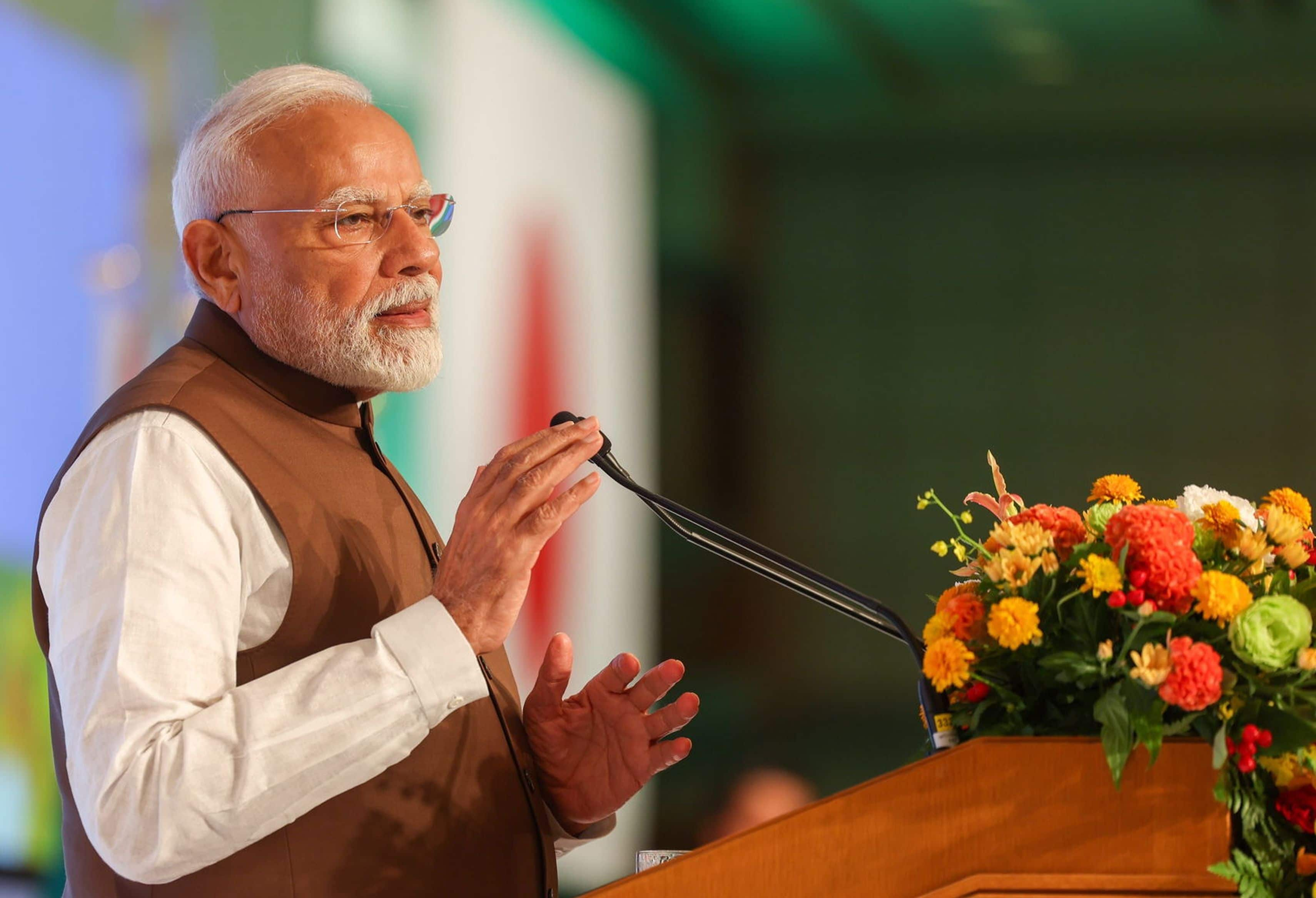The Prime Minister inaugurated the National Conference on Vigilance and Anti Corruption on the theme सतर्क भारत, समृद्ध भारत (Vigilant India, Prosperous India) today through video conferencing. The event was organized by the Central Bureau of Investigation focusing on Vigilance issues aimed at raising awareness and reaffirming India’s commitment to promotion of integrity and probity in public life through citizen participation.
Addressing the Conference, the Prime Minister said Sardar Patel is the architect of United India as well the country’s administrative systems. As the first home minister of the country, he made efforts to build such a system which is meant for the common man of the country and where the policies are based on integrity. Shri Narendra Modi lamented that the following decades witnessed a different situation which lead to scams worth thousands of crores of rupees, establishment of shell companies, tax harassment and tax evasion,
The Prime Minister said in 2014, when the country decided to make a major change and to move in a new direction, there was a big challenge in changing this environment. He added the constitution of the committee against black money was in limbo despite the Supreme Court’s directions. The committee was formed immediately after formation of this Government. This shows the commitment of the government against corruption. He said since 2014 the country witnessed reforms in many sectors including banking sector, health sector, education sector, Labour, Agriculture, etc. He said based on these reforms, the nation is now moving ahead with its full strength to make the AtmaNirbhar Bharat campaign successful. He envisioned making India one of the leading countries of the world.
The Prime Minister stressed the necessity for the administrative systems to be transparent, responsible, accountable, answerable to the public. He added that the biggest enemy against this is any form of corruption. He said one hand corruption hurts the development of the country and on the other it destroys the social balance as well as the trust that people should have in the system. And therefore, he said tackling corruption is not just the responsibility of any single agency or institution but that it is a collective responsibility. He said corruption cannot be dealt with a stand-alone approach.
He said When it is the question of the country, then the scope of vigilance becomes very expansive. Be it corruption, economic offences, drug networks, money laundering, terrorism, terror funding, it has been seen quite often that they are all linked.
He said hence there is a need for systematic checks, effective audits, and capacity building and training with a holistic approach to fight corruption. The Prime Minister emphasized that it is the need of the hour that all agencies work with synergy and a cooperative spirit.
He wished the conference to emerge as an effective platform to suggest new ways to make सतर्क भारत, समृद्ध भारत (Vigilant India, Prosperous India).
The Prime Minister recalled what he said during the 2016 Vigilance awareness program that corruption does not have even an iota of place in our country which is fighting poverty. He said that for decades, the poor did not get their entitlements but now owing to the DBT the poor are directly receiving their benefits. He said owing to DBT alone more than Rs 1.7 lakh crore are being saved from getting into wrong hands.
He expressed satisfaction that peoples faith in the institutions is being restored again.
He stressed that there should be neither any strong interference from the government nor an absence of Govt. Government's role should be limited to the extent that is needed. People should not feel that the Govt is unnecessarily interfering or that the govt is not acting when needed.
Shri Modi said that over the last few years more than 1500 laws have been abolished and many rules simplified. He said that many applications for pension, scholarship, passport, startup, etc. have been made online to reduce the hassle to the common people.
The Prime Minister quoted a saying
“'प्रक्षालनाद्धि पंकस्य
दूरात् स्पर्शनम् वरम्'।”
meaning, it is better not get dirty rather than trying to clean it later
He said similarly preventive vigilance is better than punitive vigilance. He urged the need to remove the circumstances that lead to corruption.
He quoted Kautilya’s saying
“न भक्षयन्ति ये
त्वर्थान् न्यायतो वर्धयन्ति च ।
नित्याधिकाराः कार्यास्ते राज्ञः प्रियहिते रताः ॥”
meaning, those who do not siphon government money but try to utilize it for public good, should be appointed to important posts in the interest of the state.
He said earlier there was a nefarious industry to lobby for transfer & postings. Now the government has taken many policy decisions, has shown the will to change this situation and the lobbying for appointments to higher posts has ended. The Government has abolished the interview for the post of Group B & C. He said the formation of the Bank Board Bureau, has ensured the transparency in appointments to senior positions in banks.
The Prime Minister said many legal reforms were undertaken and new laws introduced to strengthen the vigilance system of the country. He cited the new laws enacted to strengthen the vigilance system like laws against Black money, Benami properties. Fugitive Economic Offenders Act. He said India is among the few countries in the world where a face-less tax assessment system has been implemented. India is among those few countries where technology is being used more and more to prevent corruption. He said the priority of the government has been to provide better technology, capacity building, latest infrastructure and equipment to agencies related to vigilance so that they can work more effectively and deliver better results.
The Prime Minister stressed that this campaign against corruption is not just a one-day or just a one-week affair.
He mentioned generational corruption as a major challenge that has been gradually growing in the past decades and has taken a formidable form in the country. He explained generational corruption as the corruption transferred from one generation to another. He said when a generation of corrupt people does not get the right punishment, then the second generation commits corruption with more vigour. Mr Modi said, due to this, it became part of political tradition in many states. He said, this corruption and dynasty of corruption from generation to generation makes the country hollow. He said this situation is a major hurdle in the development of the country, for a prosperous India and a self reliant india. He wished that this topic would also be discussed in the national conference.
The Prime Minister urged to pay attention to the corruption related news. He said when examples of strong timely action against corruption are shown prominently it would increase the trust of the people and sends a message that it is difficult for the corrupt to escape.
He said that the country gets strengthened if it can defeat corruption and achieve the dream of Sardar Patel by making India prosperous and self reliant.
The Central Bureau of Investigation organizes this National Conference coinciding with Vigilance Awareness Wee’, which is observed in India every year from 27th October to 2nd November. Activities in this conference would be focused on Vigilance issues aimed at raising awareness and reaffirming India’s commitment to promotion of integrity and probity in public life through citizen participation.
The three day conference would discuss the Challenges in investigation in foreign jurisdictions, Preventive Vigilance as a Systemic Check against Corruption, Systemic improvements for financial inclusion and prevention of bank frauds, Effective Audit as an Engine of Growth, Latest amendments to the Prevention of Corruption Act as an impetus to the fight against corruption, Capacity Building and Training, Multi Agency Coordination-an enabler for faster and more effective Investigation, Emerging Trends in Economic Offences, Cyber Crimes and Transnational Organized Crime-measures to Control and Exchange of Best Practices among Criminal Investigative Agencies.
The Conference shall bring policy makers and practitioners on a common platform and will act as an enabler to combat corruption through systemic improvements and preventive vigilance measures, thereby ushering in good governance and accountable administration. This is a significant contributing factor for enabling ease of doing business in India.
The participants of the Conference include Heads of Anti-Corruption Bureaux, Vigilance Bureaux, Economic Offence Wings or CID from States and UTs, CVO’s, CBI officials and representatives from various Central agencies will also participate. The inaugural session was also attended by Chief Secretaries and DGsP of States and UTs.
बीते वर्षों में देश corruption पर zero tolerance की approach के साथ आगे बढ़ा है: PM
— PMO India (@PMOIndia) October 27, 2020
Corruption हो, Economic Offences हों, Drugs हो, Money Laundering हों, या फिर Terrorism, Terror Funding हो, ये सब एक दूसरे से जुड़े होते हैं।
— PMO India (@PMOIndia) October 27, 2020
इसलिए, हमें Corruption के खिलाफ Systemic Checks, Effective Audits और Capacity Building and Training का काम मिलकर करना होगा: PM
अब DBT के माध्यम से गरीबों की मिलने वाला लाभ 100 प्रतिशत गरीबों तक सीधे पहुंच रहा है।
— PMO India (@PMOIndia) October 27, 2020
अकेले DBT की वजह से 1 लाख 70 हजार करोड़ रुपए से ज्यादा गलत हाथों में जाने से बच रहे हैं।
आज ये गर्व के साथ कहा जा सकता है कि घोटालों वाले उस दौर को देश पीछे छोड़ चुका है: PM
आज मैं आपके सामने एक और बड़ी चुनौती का जिक्र करने जा रहा हूं।
— PMO India (@PMOIndia) October 27, 2020
ये चुनौती बीते दशकों में धीरे-धीरे बढ़ते हुए अब देश के सामने एक विकराल रूप ले चुकी है।
ये चुनौती है- भ्रष्टाचार का वंशवाद
यानि एक पीढ़ी से दूसरी पीढ़ी में ट्रांसफर हुआ भ्रष्टाचार: PM
बीते दशकों में हमने देखा है कि जब भ्रष्टाचार करने वाली एक पीढ़ी को सही सजा नहीं मिलती, तो दूसरी पीढ़ी और ज्यादा ताकत के साथ भ्रष्टाचार करती है।
— PMO India (@PMOIndia) October 27, 2020
उसे दिखता है कि जब घर में ही, करोड़ों रुपए कालाधन कमाने वाले का कुछ नहीं हुआ, तो उसका हौसला और बढ़ जाता है: PM
इस वजह से कई राज्यों में तो ये राजनीतिक परंपरा का हिस्सा बन गया है।
— PMO India (@PMOIndia) October 27, 2020
पीढ़ी दर पीढ़ी चलने वाला भ्रष्टाचार, भ्रष्टाचार का ये वंशवाद, देश को दीमक की तरह खोखला कर देता है: PM










